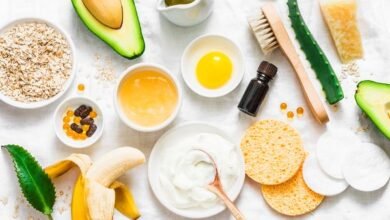Bakuchiol: Learn all about the natural alternative to retinol

Bakuchiol: Learn all about the natural alternative to retinol
With a proven natural and botanical imprint, bakuchiol has been one of the biggest news in the skincare world in recent years. The name, although difficult to pronounce, attracted attention especially due to its characteristics.
Bakuchiol is nothing more than a natural antioxidant extracted from the seeds of the plant. Psoralea corylifolia, psoriasis grown in East Asian countries. Thanks for your anti-inflammatory and antibacterial action, this compound has been used in Ayurvedic medicine for hundreds of years.
However, recent scientific articles suggest that in addition to medicinal benefits, bakuchiol can be an ally for topical anti- aging treatments, such as retinol – only with greater tolerance for sensitive skin.
What is Bakuchiol used for?
Bakuchiol can work in countless ways, but its main highlight is that it is a powerful anti-aging. To date, it is the only plant extract that has been shown to produce collagen like retinol.
According to Renato Pazzini, a dermatologist at the University of the South Pacific and a member of the Brazilian Society of Dermatology (SBD), the molecule Bacuchiol activates cellular pathways similar to those caused by the use of the active substance, also known as vitamin A, helping to reduce fine lines and even skin tone.
According to a study published in 2019 in the British Journal of Dermatology, retinol and bakuchiol work similarly on wrinkles and skin pigmentation. However, being a natural compound, bakuchiol has no side effects such as peeling, burning and itching – the most suitable option for people with sensitive skin.
In addition to its anti-aging effect, bakuchiol can help treat acne, especially in mild to moderate cases. “Bakuchiol has anti-inflammatory properties, which is one of the mechanisms of acne formation,” the specialist explains.
How to use Bakuchiol?
Unlike retinoids, which are prescribed for nighttime treatment, Bakuchiol can be used both during the day and at night. In scientific studies that compared the ingredient to the action of retinol, participants were instructed to use it twice a day.
In Brazil, bakuchiol is usually used in tampered with formulations, according to Lazini. “I especially like pairing it with vitamin C in the morning, before sunscreen; and at night with a more nourishing product, taking the opportunity to moisturize skin and reduce wrinkles,” the dermatologist points out.
It is important to remember that the use of sunscreen is indispensable in the morning, as only it is able to protect the skin from damage caused by the sun’s rays and avoid problems such as spots and even cancer.
Bakuchiol benefits
Bakuchiol, due to its anti-proliferative, anti-inflammatory, antioxidant and anti-acne properties , has the following benefits for the skin:
- Helps reduce fine lines
- Unifies skin pigmentation
- oil control
- Reduces the appearance of acne.
Bakuchiol or retinol: which is better?
Although it is a powerful anti-aging agent and is widely used in the cosmetic industry, retinol is not suitable for all skin types. For people with active infections, such as bacterial infections or herpes simplex, they are contraindicated, as well as pregnant women.
Shown as a natural alternative and with greater tolerance, Bakuchiol has been shown to strengthen the skin’s foundation and help prevent and reduce fine lines and wrinkles without the risk of irritation.
Contraindications to the use of Bakuchiol
Bakuchiol is contraindicated in cases where the patient is allergic to any of the components of the active substance. Being natural and vegan, Renato explains, it appears to be safe for everyone, however, follow-up with a dermatologist is essential.
For pregnant women, the dermatologist explains that there have been no reports of fetal abnormalities related to the use of bakuchiol. He concludes, “However, sometimes it takes years before we have confirmation of a product’s safety. It’s worth discussing with your dermatologist.”



